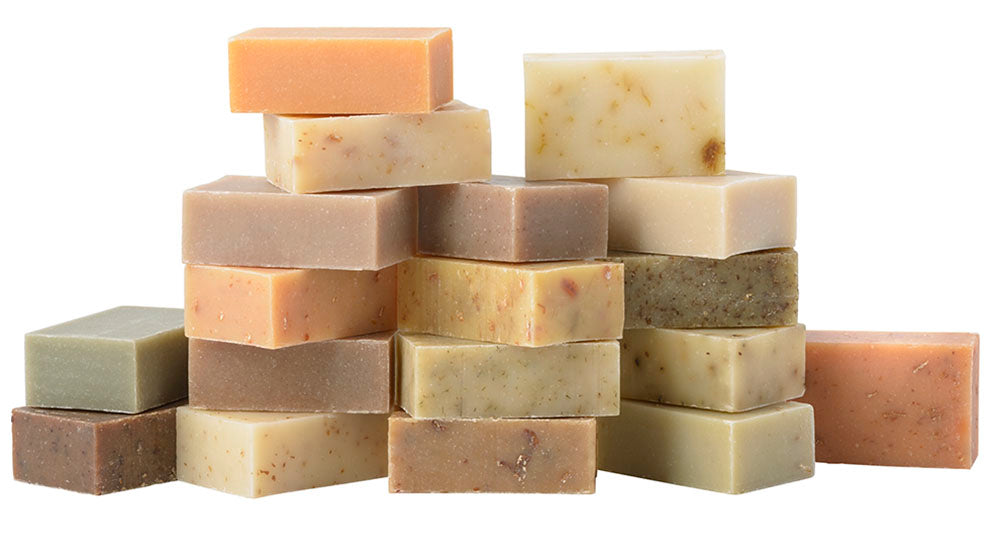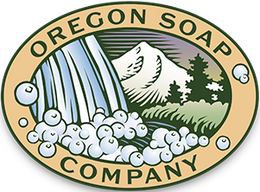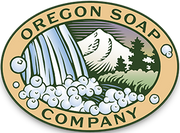What IS Soap, Anyway?

Did you know that soap has been around for thousands of years?
Yes, this incredible compound has been used for millennia in different forms. Today, the soap market is riddled with "soaps" that are full of toxic chemicals that you can't pronounce. We believe the best of the best soaps should come from natural and organic ingredients, be environmentally friendly, and biodegradable.
But what exactly is soap? How are bulk soap bars made? And is it good for you?
These are common questions for someone just getting started making their own soap. That's why we've put together a quick guide to understanding the magic of soap - its uses, history, and production. Let's get into it.
What Exactly Is Soap?
Let's start with the basics.
The FDA defines soap as "A product in which the non-volatile portion consists principally of an alkali salt of fatty acids." There are various techniques and types of soap specific to the cleaning task at hand, but they all have some similar basic properties.
To be regulated as 'soap,' the product must be composed mainly of the 'alkali salts of fatty acids,' that is, the material you get when you combine fats or oils with an alkali, such as lye.
By regulation standards, the alkali salts of fatty acids must be the only material that results in the soap's cleaning ability. If a product contains synthetic detergents, it is considered a beauty or cosmetic product, and not technically soap.
If the product is marketed as containing moisturizing or deodorizing properties, it is also considered a beauty or cosmetic product. Similarly, if a product is intended to treat disease, kill germs or treat skin conditions like acne or eczema, it is considered a drug for dermatology use.
Many products still use the word 'soap' on their labels - but they are not actually recognized as 'soap' by the FDA. Oregon Soap Company is uses only the finest quality natural and organic ingredients in our products, and by definition is actually soap.
The History of Soap
Soap has a long and exciting history. It's been around for at least 4,800 years. The Egyptians, Phoenicians, and Romans all used variations of soap made from animal fat and vegetable oils that had alkali in them.
These ingredients were pretty expensive! Since these ingredients were expensive, soap was rendered a luxury item- which is why so many of the ancient humans didn't bathe with it much.
Soap making techniques and quality were greatly improved in the late 18th century when a French Chemist developed a process of mixing natural oils or fats with caustic soda. As the price of soap became more affordable, attitudes toward cleanliness changed too. Daily use became engrained in society as an essential hygiene product.
How Is Soap Made?
The soap making process involves combining fats or oils with an aqueous alkali, or lye. When the 2 ingredients meet, they form a new compound. This new 'soap' compound becomes very water soluble and has the ability to dissolve and bond to dirt or other contaminants.
Other ingredients such as essential oils can be added to the mixture for the added unique benefits of each oil. Some are for: scent, moisturizer, antimicrobial, anti-fungal, and a host of other uses.
How Does Soap Work?
Soap is a surfactant - meaning it bridges the gap between oil or dirt and water. As such, it has two main functions.
- Soap loves water. This property is known as hydrophilic, which means that it draws in and absorbs water with ease.
- Soap loves oil and dirt. This property is known as lipophilic and allows for the easy cleaning of grease and dirty surfaces.
The oil and grit buildup on surfaces and skin are suspended in water to be easily washed away. In addition, soap reduces the surface tension of water.
Surface tension is the thing that suspends drops of water on a surface or skin. Water and soap get into those little nooks, crannies, and other hard-to-reach places by releasing surface tension to leave the surface fresh and clean!
Types of Soap
There are many types of soap out there. From highly fragrant soap to hand soap and everything in between, consumers have a lot of options available to them!
Let's look at some of the most common soap types below.
Castile Soap
Castile soap is typically one of the more liquid soap bases out there. Ours is made with olive oil, which is very soothing on the skin. Our castile soaps are all-purpose. You can use them for cleaning surfaces, dishes, skin, and pets and just about anything else you can think of!
Bar Soap
Bar soap is one of the most common and traditional options available. Look for long-lasting mild and well-formulated bar options. A good rule of thumb is that you should be able to pronounce the ingredients in it. After all, we don't want harmful chemicals on our skin!
Brick Soap
If you know what you like, and like what you know- brick soap is the option for you! Brick soaps are essentially long pieces of soap that you can cut into smaller pieces for use.
By weight, bricks are priced much cheaper than individual bar soaps, which is excellent if you're on a budget or if you're looking to cut them down to size for resale! You get all the qualities and benefits of good soap but at a better price.
Foaming Soap
Foaming soap can be a delight to use! It is commonly used for hand soap.
It is a big hit with children especially. Look for a non-irritating, mild formula that you can use for various purposes.
Buy High-Quality Bulk Soap Bars Today
Soap is an essential part of our lives. We rely on it in all aspects of life, from various cleaning products to personal care and hygiene.
However, it can be challenging to find high-quality bulk soap bars formulated with quality ingredients. That's where Oregon Soap Company comes in. We have something for everyone with a wide range of soap products, custom formulation options for your brand, and private label soap varieties if you'd like to offer soap to your customers but take the guesswork out of the production process.
Be sure to check out our wholesale soap options today!


I absolutely love your soap and shampoo bars. I’ve been a customer for more than 7 years.
I’ve shared this to my Facebook page! Keep putting out these spectacular products.
Donna
Can you explain whether your soap is biodegradable? The description above says you believe it should be, but it would be helpful to know if all products are biodegradable, or which ones are, especially for off-grid water systems. Thank you!
So, where does body wash fit into this?
Also, could you use a foaming pump container for body wash?
Are you’re soaps tripled milled
Can your foaming soaps be used for laundry and dishes etc. Thanks for answering! Blessings
Leave a comment